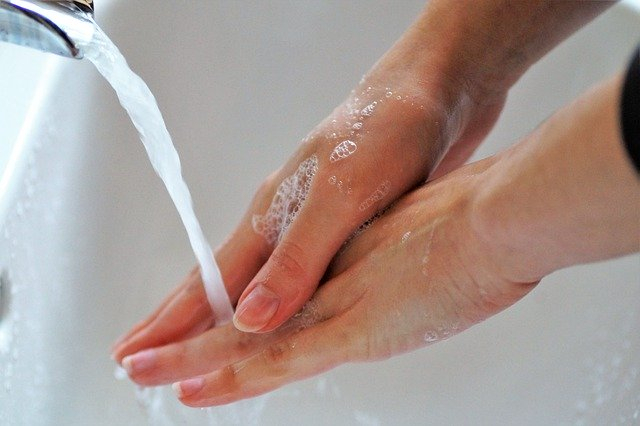Japanese researchers have published a study stating that the novel Coronavirus can survive on human skin for nine hours, much longer than flu viruses. This new finding once again underscores the importance of frequent handwashing or sanitization to fight against the Coronavirus pandemic.
It was found that the flu viruses can linger on human skin for about 1.8 hours by comparison, said the study. The researchers stated that the nine-hour survival of SARS-CoV-2 on the skin "may increase the risk of contact transmission in comparison with IAV (influenza A virus), thus accelerating the pandemic."
According to the researchers, proper hand hygiene is very important to prevent the spread of COVID-19--at least until the world gets an effective vaccine.
Pathogen Survival on Skin

A few days ago, a study published by Commonwealth Scientific and Industrial Research Organisation researchers suggested that novel Coronavirus can survive up to 28 days on common surfaces. But for ethical reasons, researching how long the pathogen can survive on human skin is quite complicated—scientists can't just put a sample of a deadly virus on people's skin.
So, the researchers from the Japan's Kyoto Prefectural University of Medicine, created a skin model using samples of human skin obtained from autopsies, about one day after death. As per the researchers the 24 hours after the death, human skin still can be useful.
Using the model, the researchers found that SARS-CoV-2 can survive on skin samples for 9.04 hours, while IAV can linger on human skin for 1.82 hours. When these viruses get mixed with mucus and mimic the release of viral particles in sneeze or cough, the novel Coronavirus lasted for about 11 hours. As per the researchers, both the viruses—IAV and SARS-CoV-2—were inactivated on skin 15 seconds after using hand sanitizer which was 80 percent ethanol.
However, this study--published in the Clinical Infectious Diseases journal--backs World Health Organization (WHO) guidance for regular and proper handwashing to curb the spread of the novel virus, which has infected almost 40 million people all around that world and killed over 1,109,000 individuals since it first emerged in China in late 2019.









